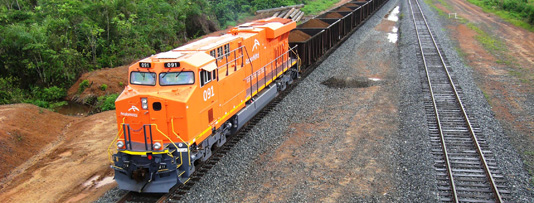Notwithstanding all the economic – and often political/social – difficulties of the continent, the rail market in Africa is one of the most promising for the near future. Many plans are afoot for the construction of new railway lines designed according to modern standards, while the railways already existing are being laboriously upgraded, developing the old lines inherited from the colonial era, by improving the tracks and adding more recent rolling stock. According to some recent research conducted by the German consultancy company SCI Verkehr, the overall extension of the network throughout the whole of Africa should increase from the 82,100 km of 2011, to approx. 96,300 km by 2017.
There are myriad reasons for this “renaissance” of rail transport, which tend to differ depending on the area of the huge continent involved. There are, however, some common drivers for development. First and foremost, Africa has the largest supply of still untapped natural resources in the world: the rapid economic growth of India, but especially China, over the last few years requires constantly increasing availability of these materials. Suffice it to say that China alone, in 2011, imported raw materials from Africa for an overall value of 93 billon dollars, and that over 800 large groups – particularly belonging to the infrastructure and energy sectors (but now also the finance sector) are operating directly in the continent.
Full article is available only for registered users.
Click the link below to download pdf version of Railway Engineering
